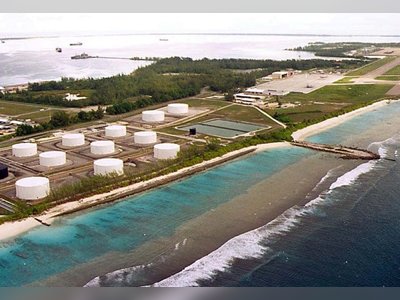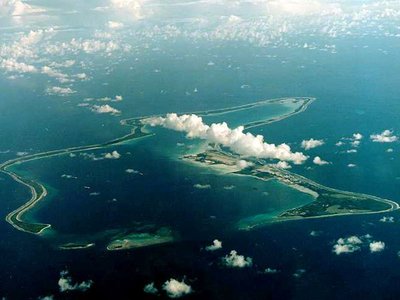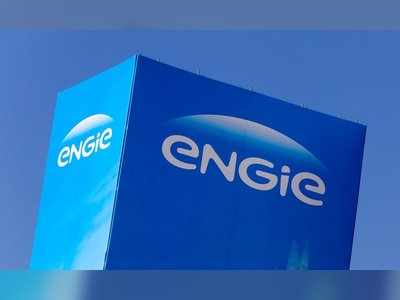
Japan Prime Minister Biden's First Guest With Push On 5G, Climate, China
Japan's prime minister began the first summit of Joe Biden's presidency Friday with the allies expected to signal progress on 5G technology and climate change amid a concerted US push to compete with China.
Opening his visit by meeting Vice President Kamala Harris, Prime Minister Yoshihide Suga echoed Biden's language in saying the nations' relationship is "connected by universal values such as freedom, democracy and the rule of law."
"This is a time like no other in which the Japan-US alliance needs to be strong," Suga said.
Biden's decision to invite Suga as his first guest -- with South Korean President Moon Jae-in set to come in May -- is meant to show the value his administration puts on allies as he zeroes in on a rising China as America's most pressing challenge.
"I would say that this should send a strong message," White House Press Secretary Jen Psaki said of the invitations.
On another key priority of Biden, Psaki said that Suga was expected to announce a new 2030 target on reducing carbon emissions responsible for climate change.
The world's third largest economy promised under the Paris accord to reduce emissions by 26 percent by 2030 but from 2013 levels -- goals that experts say are not ambitious enough to meet Suga's goal of a carbon-neutral Japan in 2050.
Biden will lead a virtual summit next week in hopes of rallying greater commitments on climate amid growing evidence of a planetary crisis as average temperatures hit record highs and natural disasters become more frequent.
Alliance on 5G
A senior US official said that technology leader Japan would also announce a "very substantial commitment" of $2 billion in partnership with the United States "to work on 5G and next steps beyond."
China's Huawei has taken an early dominance in fifth-generation internet, which is becoming an increasingly crucial part of the global economy, despite heavy US pressure on the company, which Washington argues poses threats to security and privacy in the democratic world.
Biden and Suga will also discuss next moves on North Korea and growing tensions over Taiwan as the island has reported growing penetration of its airspace by Beijing, which claims the self-governing democracy.
"Neither country is seeking to raise tensions or to provoke China, but at the same time we're trying to send a clear signal that some of the steps that China is taking," the official said, are "antithetical to the mission of maintaining peace and stability."
While the timing was coincidental, the official said it was appropriate that Biden was shoring up relations with a top ally two days after his momentous decision to withdraw from Afghanistan after 20 years, ending the longest-ever US war.
The pullout will "free up time and attention and resources from our senior leadership and our military to focus on what we believe are the fundamental challenges in the 21st century and they lie fundamentally in the Indo-Pacific," the official told reporters.
Nuanced differences
Suga in September succeeded his ally Shinzo Abe, Japan's longest-serving prime minister, who was one of the few democratic allies to manage to preserve stable relations with Biden's volatile predecessor Donald Trump.
Biden's inaugural summit is being held unusually late in his term due to the Covid-19 pandemic and the White House has downsized the usual pageantry as a precaution, with no meal between the leaders and strict limits on the number of journalists and officials in each room.
Despite the good vibes, Suga is expected to balk at becoming an overenthusiastic cheerleader for the US line on China, which remains the vital top trading partner for resource-scarce Japan.
Tokyo since Abe's time has worked to stabilize relations with Beijing and not joined Washington in sanctions over rights concerns in Hong Kong and Xinjiang.
"The Biden administration, I think, is concerned at how aggressive China has been and how much ground the US has lost in recent years in Asia and wants to catch up quickly," said Michael Green, who was the top Asia adviser to former president George W. Bush and is now senior vice president at the Center for Strategic and International Studies.
"I think the Japanese view is that they have had a strategy in place and they want to move forward steady as she goes," he said.
"So there's a bit of a nuanced difference in public tone but not in direction," he said.










